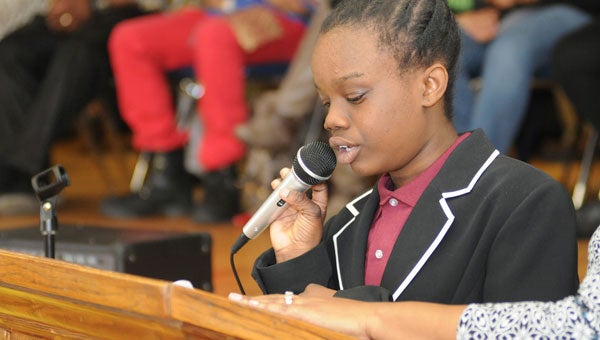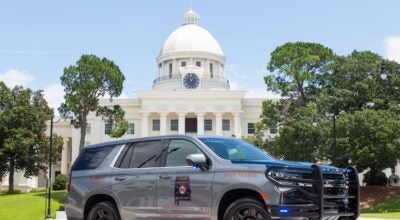Knox students mark Black history month
Published 6:35 pm Thursday, February 27, 2014

Knox Elementary School student and third place Black history essay winner Ja’Nya Howard reads her award-winning essay on the importance of Black history Sunday at the school’s Black history program held in the school cafeteria. (Sarah Robinson | Times-Journal)
Knox Elementary students recognized African-Americans who contributed to American history Wednesday during the school’s annual Black History program
The ceremony, which was held in the school cafeteria, was meant to empower students and education them about African-American heritage.
“I am proud of my heritage, and I want that to be instilled in the students,” first grade Knox Elementary teacher Sherry Baker, who directed the program, said.
The ceremony featured the Concordia College Choir, a speech from Dallas County Democratic Conference chairman James Perkins, a poem read by Knox reading coach Tracey Parker and students presenting Black history as prominent African-Americans.
Some of the African-American leaders honored were Super Soaker water gun inventor Lonnie Johnson, long-handle dust pan inventor Llyod Ray, African-American abolitionist Harriet Tubman, educator George Carver and iron board inventor Sarah Boone.
During the program, the winners of the essay contest for grades third through fifth and poster contest for grades kindergarten through second were announced.
First place winner Prince Fitzpatrick, second place winner Keaira Watts, and third place winner Ja’Nya Howard presented their award-winning essays about Black history to the crowd.
First place winner Shayonie Powell, second place winner Kalaysia Houston and third place winner Li’Donna Woods displayed their award-winning art to the audience.
During the event, Knox Elementary Principal Adrienne Lee reassured the students of their worth.
“Each and every single person in this cafeteria has a purpose in his or her life,” Lee said. “Live out your purpose. Do not allow anybody to steal, kill or destroy your purpose in life.”
Natasha Williams, the mother of children in second grade and kindergarten at Knox Elementary, said she was glad to have her kids exposed to information about Black heritage that would benefit them throughout their lifetime.
“It’s important to know your history, so you can know where you came from and where you can go,” Williams said.





